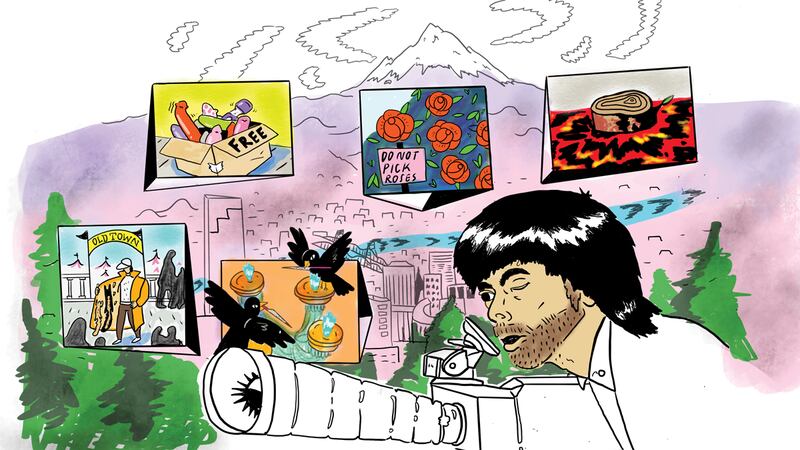Since 1981, Ken Burns has had a successful career chronicling the American experience through documentaries. His films, including The Civil War, Jazz, The National Parks: America's Best Idea and many others, tend to focus on those events and institutions that are distinctively American.
He will be appearing at the Arlene Schnitzer Concert Hall, Monday, July 24, to discuss his career and newest work, which is already being hailed by some as his "boldest" and "most observant yet," the 10-part 18-hour series Truck Nutz: The American Accessory, premiering on PBS in September.
In returning to Portland, Burns will revisit the place of arguably the greatest failure of an otherwise illustrious career. Ken Burns: Portland, the documentary he began but was unable to complete due to a series of hilarious production mishaps, would have fit snugly within the context of his overall body of work. After all, is not the history of Portland—its successes and failures and mounting tensions and ongoing changes—emblematic of Burns' favorite subject, our nation of America?
Fortunately, the unfinished version still exists and was recently screened at the Olde Portland Preservation Society. This is what we saw.
HOUR 1: LAVATOWN
Before Portland was Stumptown, it was Lavatown. And as you might guess, life in Lavatown was a constant struggle. Burns' research unearthed fascinating diary entries from a man who lived on a large rock floating in the middle of the Boring Lava Field with his wife and children. Lava Man's diary entries describe the harsh realities of that time, what it was like raising a family and the grim task of having to leap from rock to rock so as to not fall into the boiling lava below. The late pumice-voiced actor Jason Robards narrates Lava Man's diary.
HOUR 2: SHANGHAIED
When hour 2 begins, Portland is no longer a volcanic, sulfuric wasteland. It is a booming, gritty, industrial city on a river fork. David McCullough narrates, citing one-time daily newspaper the Oregonian: "Portland is the most filthy city in the northern states." In order to deepen his research for this hour, Burns hung around the supposed entrances to the Shanghai Tunnels glaring and gesturing at seedy Old Towners, hoping he could get one of them riled enough to knock him out and send him to China in the hold of a ship.
HOUR 3: POWELL BUTTE
Disappointed at not being Shanghaied, Burns withdrew in solitude to Powell Butte. There, he built an elaborate treehouse mansion where he could be undisturbed. He left the manse only when necessary, to raid nearby homes for food and caches of old photographs. Around this time, an emissary from PBS was sent to check in with Burns. The missing persons case remains unsolved. This hour features little narration, but makes up for it with lots of beautiful nature photography.
HOUR 4: LITTLE BEIRUT
Burns' re-emergence into society coincided with his appearances at Saturday Market to barter the pelts of ground squirrels he trapped on the butte. Anarchists, admiring the quality of the pelts, offered to let him hang out with them in exchange for pelts. This final hour ends abruptly. We see footage from what appears to be a protest in front of a hotel in downtown Portland. Suddenly, the camera begins to shake violently and we hear Ken Burns shouting the immortal words, "Hey, give it back!"
The camera lifts in the air and turns back to a young baby-faced Ken Burns jostling for position in the crowd and reaching impotently for the camera. Two burly fur coat-clad anarchists grab Burns by the shoulders and lead him out of the crowd. The camera is set on the ground, and we see the bottom of a black boot rise above it. FADE TO BLACK.
KEN BURNS: PORTLAND. Directed by Ken Burns.
Ken Burns appears Monday, July 24, at the Arlene Schnitzer Concert Hall, 1037 SW Broadway, portland5.com. His new 18-hour documentary, Vietnam, is probably not about Truck Nutz, but may feature Truck Nutz. 7:30 pm. $20-$30 ($12 for vets).
